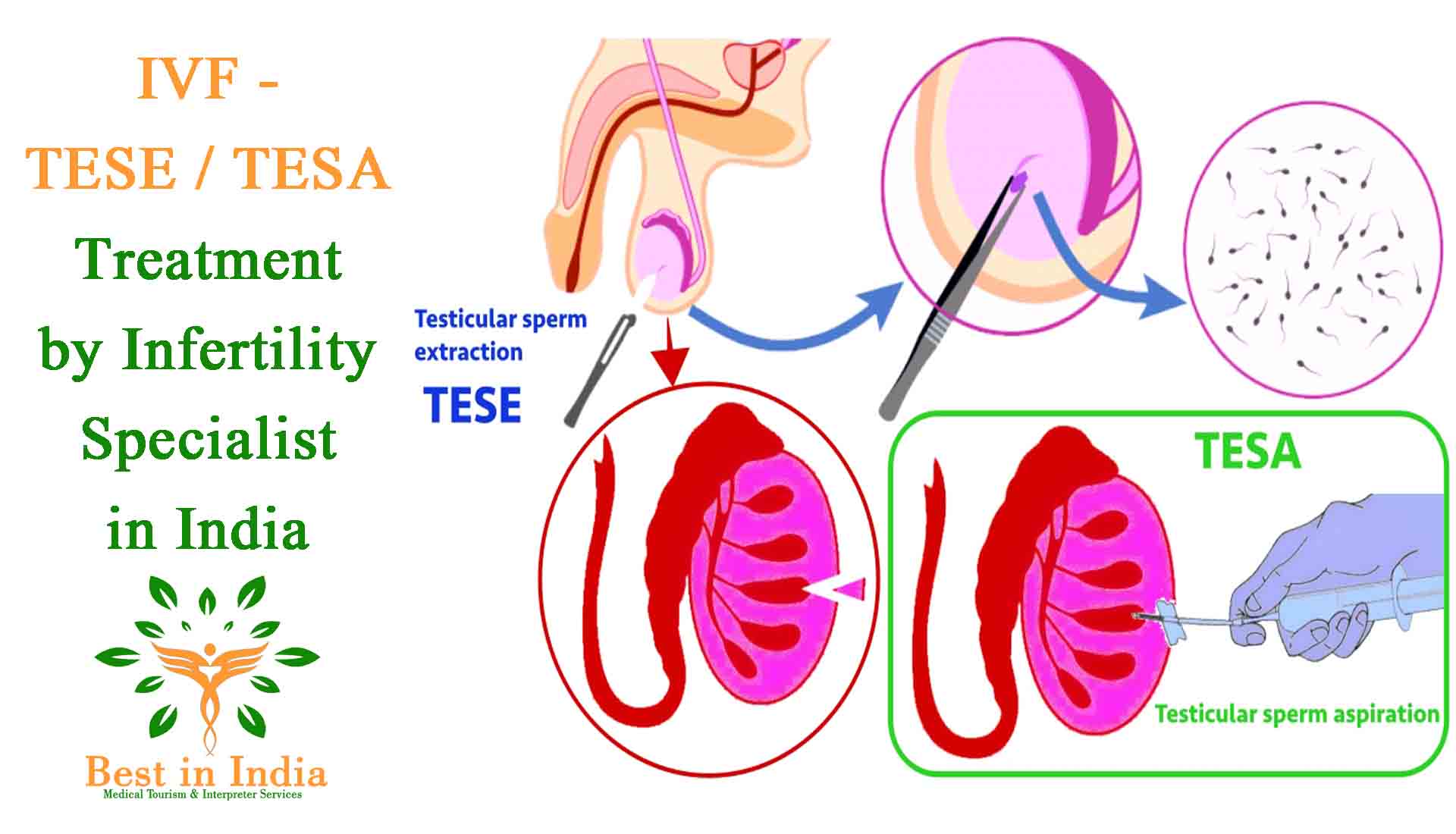
IVF - TESA - Treatment Of Male Infertility By TESA
One of the most recent sperm retrieval methods is called TESA, or testicular sperm aspiration. Men with azoospermia, a condition in which there are no sperm in the ejaculate, are advised to undergo this treatment. Historically, the only treatments for azoospermia were donor insemination or reconstructive surgery (if there was obstruction). Since the development of intra-cytoplasmic sperm injection (ICSI), many azoospermic men have been able to become biological fathers by using sperm from their testicles or epididymis.
Men undergo the following surgical sperm retrieval procedure:
- if they have non-obstructive azoospermia or insufficient sperm production from their testicles
- Obstructive azoospermia is a condition in which the sperm are prevented from passing to the semen due to some obstruction.
Their ability to reproduce may be hampered by extremely low sperm production. In these circumstances, TESA has been a significant advancement in directly removing sperm from a man's testis. If sperm is extracted from a man's testis or epididymis, he may be able to father a child despite having azoospermia. Men with non-obstructive azoospermia, in which the epididymis cannot produce any sperm, undergo this surgery.
How is TESA Procedure Done?
A needle is inserted into the testis during testicular sperm aspiration, and fluid and tissue are aspirated under negative pressure. The sperm cells are then extracted from the sample via ICSI, or intracytoplasmic sperm injection, in the embryology lab.
To fertilise an egg, sperm cells may not necessarily need to be mature and go via the epididymis. They require ICSI, a procedure in which one sperm is extracted from the semen and inserted straight into the egg, as the testicular sperm are immature.
Given that TESA is a somewhat complicated surgery, there may be some discomfort for a few days. Without the need for a hospital stay, it is performed under local anaesthetic or sedation in a daycare setting. Testicular biopsy is required in these situations if TESA is unable to produce enough sperm.

